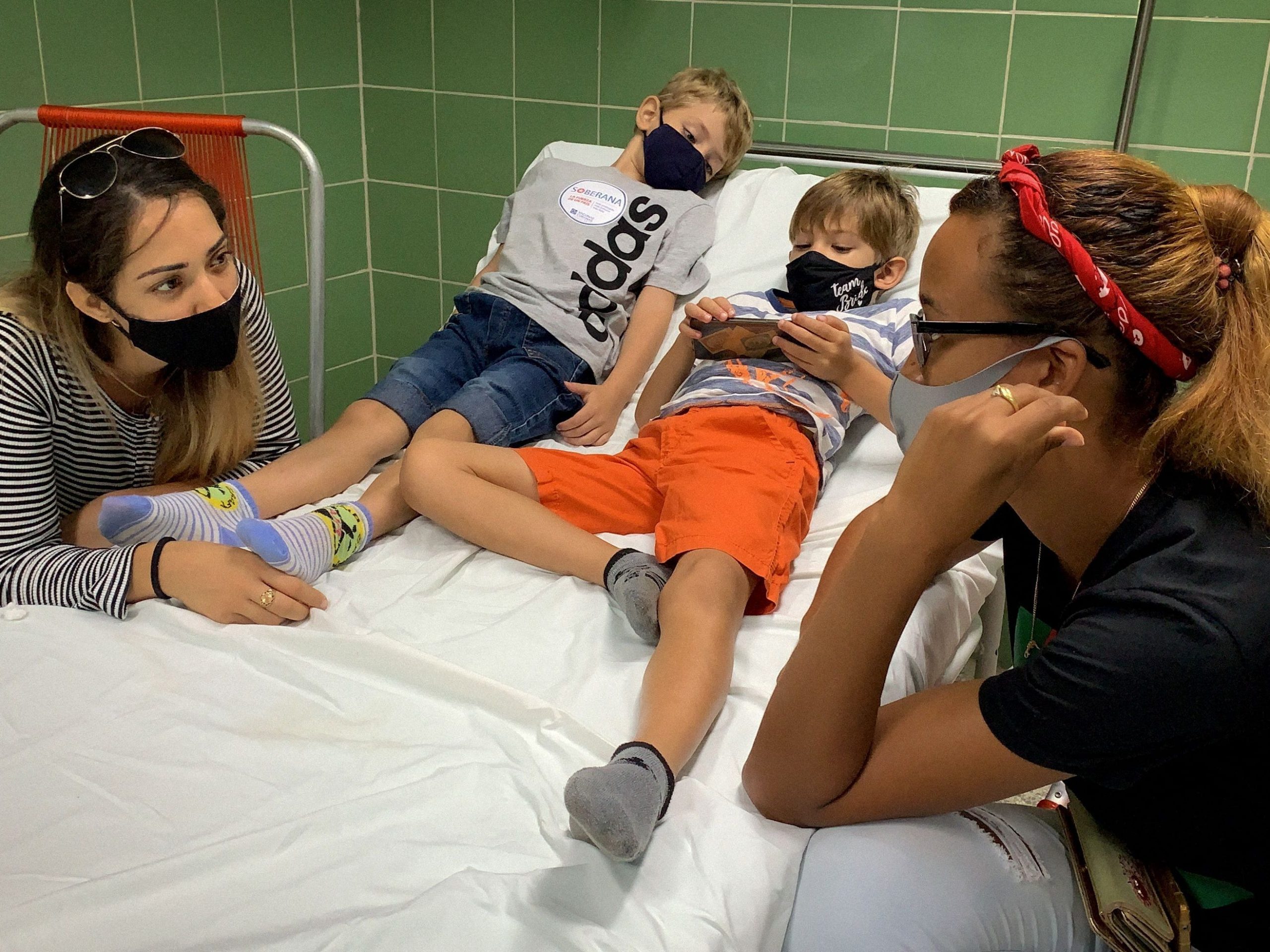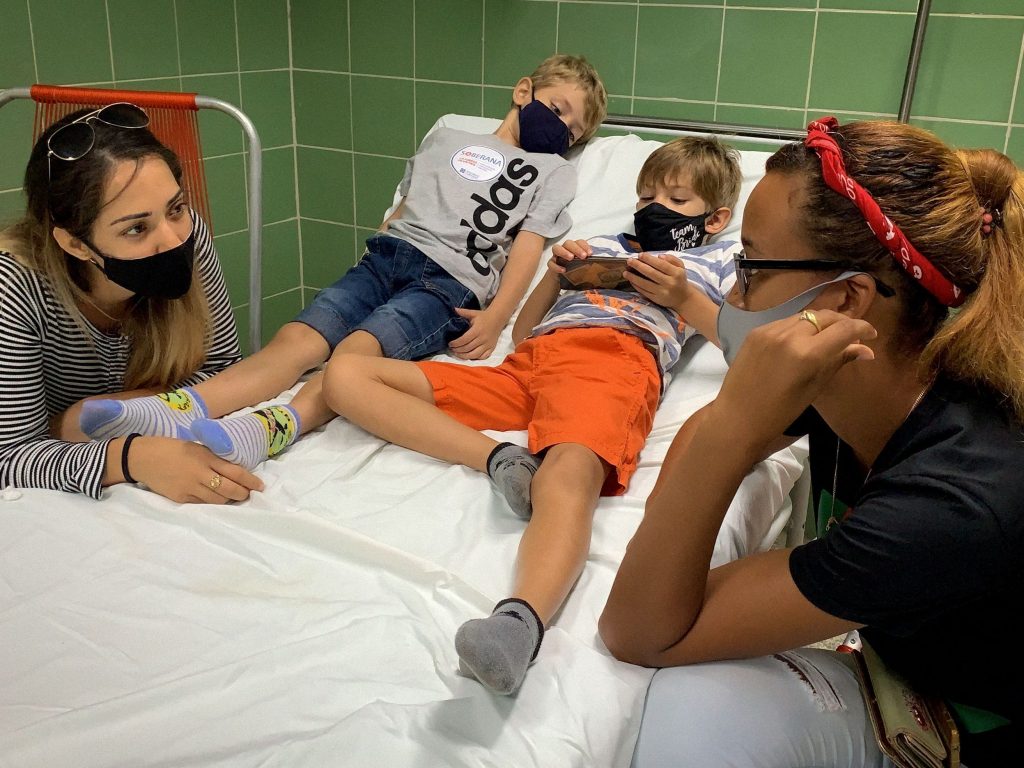
ADALBERTO ROQUE/AFP via Getty Images
- On Monday, Cuba started vaccinating children as young as two, aiming to get all children inoculated before schools reopen.
- The country is using locally-produced COVID-19 vaccines that are not recognized by the World Health Organization.
- The island of 11 million people is seeing a surge in COVID-19 cases that is crippling its healthcare system.
- Visit Insider's homepage for more stories.
On Monday, Cuba started vaccinating toddlers as young as two in a global first, aiming to get all children inoculated before schools reopen, reported AFP.
The country of 11 million people is using locally-produced COVID-19 vaccines – Abdala and Soberana – that are not recognized by the World Health Organization. Local clinical trials, however, have shown that the two vaccines have an efficacy rate of more than 90%, reported The Guardian.
The country is hoping the inoculation effort will get its children back to school. Children have been attending schools through lessons on television programs due to the lack of universal internet access since March 2020. Authorities have said schools will reopen gradually in October after all children are vaccinated, reported AFP.
After clinical trials on minors, the country started vaccinating children 12 and older on Friday, per the wire agency. This week, it started inoculating those between two and eleven in central Cuba's Cienfuegos province.
Cuba is facing a surge in COVID-19 cases after managing to contain infections last year, as other countries in the region suffered from widespread outbreaks. The country has recorded close to 690,000 COVID-19 cases throughout the pandemic – more than a third of which were recorded in the last month alone, according to Johns Hopkins University.
Cuba has seen 5,700 deaths from the pandemic, 2,400 of which occurred in the last month.
The crisis is causing the cracks in Cuba's oft-lauded free health care system to grow. Oxygen and medical supplies running low and mortuaries are overwhelmed, reported The New York Times. Healthcare workers have also criticized the government for its handling of the pandemic, reported CNN, saying they have had to buy their own protective equipment. Cuban authorities blame the system's troubles on the long-standing US embargo, which prevents the country from buying medical supplies from the US.
Other countries have also announced vaccinations for young children but have yet to kick off their programs.
In June, China approved the use of the Sinovac vaccine for children as young as three, reported the South China Morning Post. The UAE also said earlier this month it will start providing China's Sinopharm COVID-19 vaccine to children between three and 17, per Reuters.
On Monday Chile approved the Chinese-made Sinovac vaccine for children as young as six, reported Reuters. The country approved the use of the Pfizer vaccine for children above 12 in May, per the wire agency.
